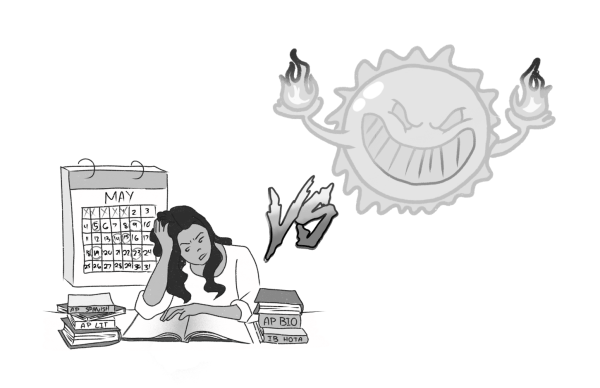Growing Anti-Islamic Sentiment Negatively Affects Students at CHS
Recent events such as the Paris attacks, San Bernardino shooting, and other terrorist attacks that ISIS has claimed responsibility for have contributed to the rise of anti-Islamic sentiment not only in the U.S., but the world as well. Anti-Islamic sentiment or Islamophobia is discrimination, intolerance, prejudice, or hatred towards Muslims. Anti-Islamic sentiment has increased due to the lack of information and the portrayal of the religion through the media; this has affected many who practice Islam, including many students at CHS. In light of the growing anti-Islamic sentiment in the U.S. and around the world, many Muslims at CHS have experienced intolerance and microaggressions towards their family members, friends, and themselves from fellow classmates and in some cases, even teachers.
In most cases, Islamophobia often stems from lack of knowledge or experience. It is nearly impossible for one to be unaware of recent terrorist attacks, especially those involving the radical Sunni Muslim organization, ISIS. While many know of terrorist attacks committed by Muslims, few take the time to truly learn and develop an understanding of the religion and its followers. Many Islamophobes fear a religion they do not understand. This has created frustration for many students at CHS.
“Anti-Islamic sentiment comes from ignorance. The way to combat it is to meet a Muslim and learn about them. A lot of people who criticize the religion don’t even have experiences with Muslims. They only see how we are portrayed in the media. Ignorance can be blamed on the media through news coverage, Republican debates, and how Muslims are portrayed in TV shows and movies,” President of the Muslim Student Association (MSA) sophomore Rayyan Misherghi said.
Even though Claremont is seen as a fairly progressive community, many Muslim students at CHS have had or know of someone who has had a personal experience with discrimination or hatred due to their religion. According to the council on American Islamic relations, 55% of Muslim students ages 11 to 18 in California have been subject to religion-based bullying. Unfortunately, students at CHS also face bullying on campus.
Many Muslim students have witnessed people yelling “Allahu akbar”as a joke. “Allahu akbar” is a common Islamic phrase that translates to “God is great.” Many students say this as an insult or a form of mockery. While sometimes these “jokes” have no malicious intent, they are not harmless and contribute to the hatred and intolerance directed towards Muslims. As two students who wish to remain anonymous point out, some of this prejudice is coming from CHS teachers. One of these students brought up an instance where their sibling was called a terrorist by a teacher, while the other student mentioned an instance where their sister’s hijab was questioned and joked about by a teacher.
Anti-Islamic sentiment goes beyond offending Muslims. Muslims experience a real threat of violence and aggression due to the actions of an extremist group that they do not identify with.
“It is pretty much a universal agreement that we feel like we have to defend ourselves and our religion even though we shouldn’t have to we feel like we constantly have to prove something. After the San Bernardino attack, we were all more cautious and on the lookout. At first, going out was scary, especially for people who wear hijabs,” Misherghi said.
Many Muslims feel that ISIS misrepresents Islam and that their actions, committed in the name of their religion, create many problems for many them.
“It is annoying, to be honest. They have their own Twitter and other outlets where they’re blasting propaganda. Some people will believe anything they hear or read, causing people to take it way too far,” member of the MSA freshman Ayman Taleb said.
Anti-Islamic sentiment has caused people to try to alienate Muslims and make all of them appear as a threat to the well-being and safety of Americans.
“People believe that we [Muslims] are terrorists and that ISIS is Islam and they are not,” member of the MSA sophomore Mahmoud Maarouf said.
As it is difficult to control what the media portrays, many of the Muslim students at CHS would ask that people are not quick to make judgments on the character of over a billion people based the actions of extremists. Anti-Islamic sentiment is not just frustrating to Muslims, it sometimes motivates brutality and legitimately threatens their safety. Some may believe that Muslims may not experience anti-Islamic sentiment in Claremont; however, it is clear that it is present even at CHS, and many Muslims feel prejudice and intolerance due to their religion.
Hello there! Our goal is to provide relavent, engaging journalism for readers of all ages. Your donation will support the student journalists of the Wolfpacket at Claremont High School, and will allow us to purchase equipment, print our monthly issues, and enter in journalism competitions. We appreciate your consideration!







